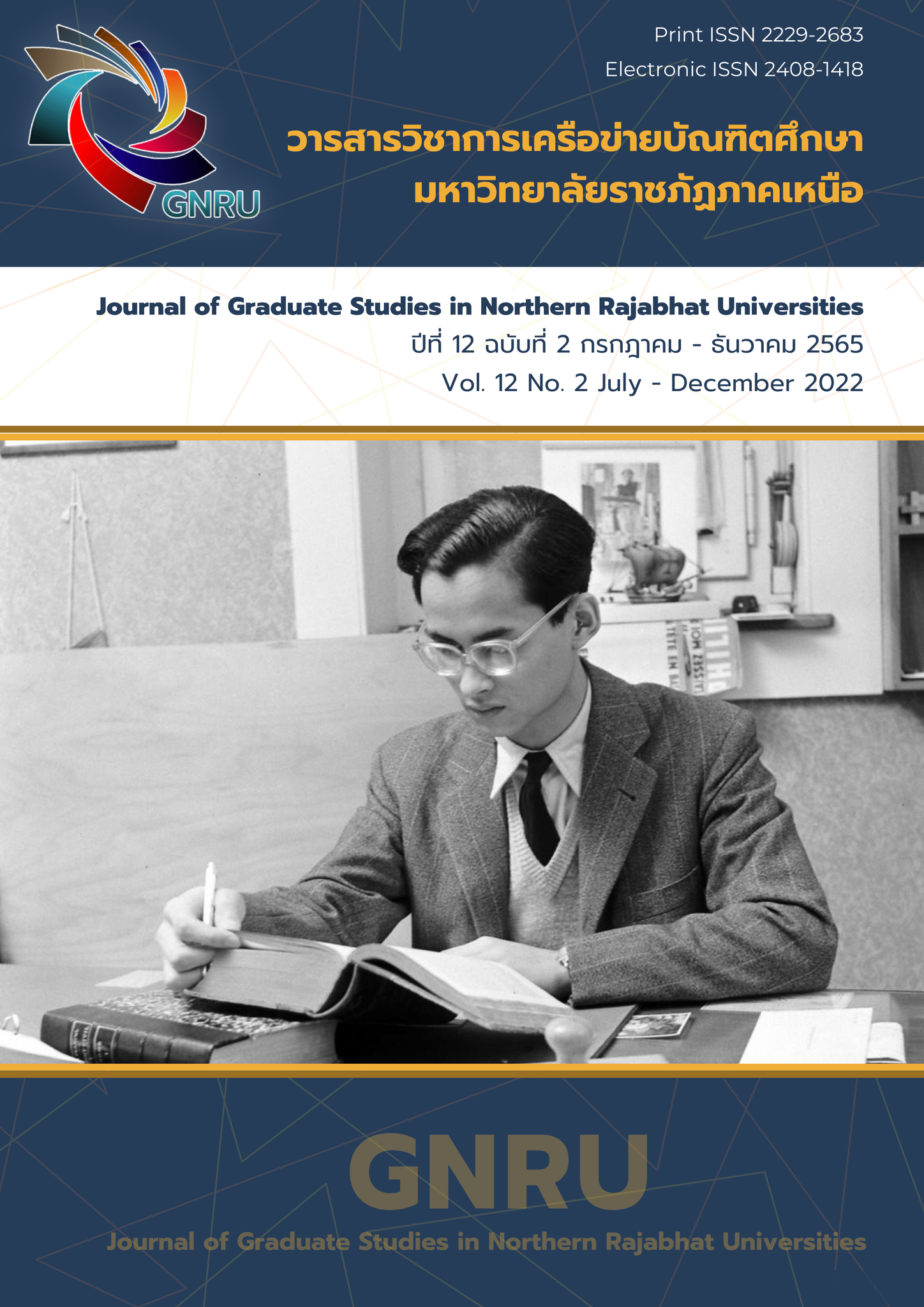The Development of Innovative Learning Experiences through a Series of Drama and Role-playing Activities to Promote Executive Thinking Skills in Early Childhood Students in Small-sized Schools
Main Article Content
Abstract
Step 1: Create and develop innovative learning experiences through a series of drama and role-playing activities to promote early childhood children’s executive thinking skills in small-sized schools, and step 2 experiment with the innovative learning experience. The samples were 318 early childhood students and 39 early childhood teachers in small-sized schools under Nakhon Sawan Primary Educational Service Area Office 1 by multi-stage sampling. The data were collected by employing learning plans to develop executive thinking skills in early childhood by using innovative learning experiences through a series of drama and role-playing activities in small-sized schools; assessment form to measure the level of executive thinking skills, and teacher satisfaction assessment form in the use of innovation; analyzed by using mean, standard deviation, and t-test dependent. The results of the research were as follows: 1) The result of creating and developing an innovation for learning experience through a series of drama and role-playing activities to promote executive thinking skills of early childhood children in small-sized schools accorded to the 80/80 criterion with E1 equal to 87.56 and E2 equal to 86.03. 2)Early childhood students had executive thinking abilities after using innovative learning experiences through a series of drama and role-playing activities higher than before using innovations significantly different at 0.01. 3) Teacher satisfaction with innovative learning experiences involving drama and role-playing activities to promote the executive thinking skills of early childhood children in small-sized schools was at the highest level.
Article Details
References
กระทรวงศึกษาธิการ. (2546). พระราชบัญญัติการศึกษาแห่งชาติ พ.ศ.2542 และที่แก้ไขเพิ่มเติม (ฉบับที่2) พ.ศ. 2545. กรุงเทพฯ: กระทรวงศึกษาธิการ.
กระทรวงศึกษาธิการ. (2560). หลักสูตรการศึกษาปฐมวัย พุทธศักราช 2560. กรุงเทพฯ: ชุมนุมสหกรณ์การเกษตรแห่งประเทศไทย.
นวลจันทร์ จุฑาภักดีกุล และคณะ. (2560). การพัฒนาและหาค่าเกณฑ์มาตรฐานเครื่องมือประเมินการ คิดเชิงบริหารในเด็กปฐมวัย. กรุงเทพฯ: ศูนย์วิจัยประสาทวิทยาศาสตร์ สถาบันชีววิทยาศาสตร์โมเลกุล และสถาบันแห่งชาติเพื่อการพัฒนาเด็กและครอบครัว มหาวิทยาลัยมหิดล.
สำนักวิชาการและมาตรฐานการศึกษา. (2561). คู่มือหลักสูตรการศึกษาปฐมวัย พุทธศักราช 2560. กรุงเทพฯ: โรงพิมพ์ชุมนุมสหกรณ์การเกษตรแห่งประเทศไทย.
สุภาวดี หาญเมธี. (2559). พัฒนาทักษะสมอง EF ด้วยการอ่าน. กรุงเทพฯ: บริษัท ไอดี ออล ดิจิทัลพริ้นท์จำกัด (สำนักงานใหญ่).
อรทัย บุญเที่ยง. (2562). ผลการศึกษาการบูรณาการจัดการเรียนรู้ทักษะทางสมองเพื่อชีวิตที่สำเร็จ (Executive Function: EF) ของครูผู้ดูแลเด็กเล็กในเขตพื้นที่จังหวัดกำแพงเพชร. กำแพงเพชร: สาขาวิชาการศึกษาปฐมวัย คณะครุศาสตร์ มหาวิทยาลัยราชภัฏกำแพงเพชร.
Center on the Developing Child. (2015). Activities Guide: Enhancing and Practicing Executive Function Skills with Children from Infancy to Adolescence. Retrieve from https://developingchild.harvard.edu.
John Dewey. (1969). Philosophy Education, and Reflective Thinking. In Thomas O. BufordProcesses. Cambridge, MA: Harvard University Press.
Dawson, P., & Guare, R. (2014). Interventions to promote executive development in children and adolescents. In Handbook of executive functioning. Springer, NY. 427-443.
Vygotsky, L.S. (1978). Mind in Society: The Development of Higher PsychologicalToward a Philosophy of Education. New York: The Macmillan Company


